
Gary Busey is an American actor. He portrayed Buddy Holly in The Buddy Holly Story (1978), for which he was nominated for the Academy Award for Best Actor and won the National Society of Film Critics Award for Best Actor. His other starring roles include A Star is Born (1976), D.C. Cab (1983), Silver Bullet (1985), Eye of the Tiger (1986), Lethal Weapon (1987), Hider in the House (1989), Predator 2 (1990), Point Break (1991), Under Siege (1992), The Firm (1993), Drop Zone (1994), Black Sheep (1996) and Lost Highway (1997).

Mr. T is an American actor. He is known for his roles as B. A. Baracus in the 1980s television series The A-Team and as boxer Clubber Lang in the 1982 film Rocky III. He is also known for his distinctive hairstyle inspired by Mandinka warriors in West Africa, his copious gold jewelry, his tough-guy persona and his catchphrase "I pity the fool!", first uttered as Clubber Lang in Rocky III, then turned into a trademark used in slogans or titles, like the reality show I Pity the Fool in 2006.
Bob Zmuda is an American writer, comedian, producer, and director best known for his friendship with comedian Andy Kaufman.

Taxi is an American television sitcom that originally aired on ABC from September 12, 1978, to May 6, 1982, and on NBC from September 30, 1982, to June 15, 1983. It focuses on the everyday lives of a handful of New York City taxi drivers and their abusive dispatcher. For most of the run of the show, the ensemble cast consisted of taxi drivers Alex Reiger, Bobby Wheeler, Elaine Nardo, Tony Banta, and "Reverend" Jim Ignatowski, along with dispatcher Louie De Palma and mechanic Latka Gravas. Taxi was produced by the John Charles Walters Company, in association with Paramount Network Television, and was created by James L. Brooks, Stan Daniels, David Davis, and Ed. Weinberger, all of whom were brought on board after working on The Mary Tyler Moore Show.
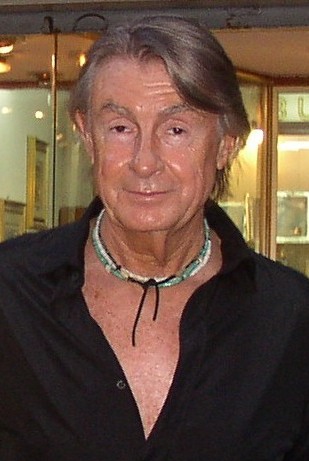
Joel T. Schumacher was an American film director, producer and screenwriter. Raised in New York City by his mother, Schumacher graduated from Parsons School of Design and originally became a fashion designer. He first entered filmmaking as a production and costume designer before gaining writing credits on Car Wash, Sparkle, and The Wiz.
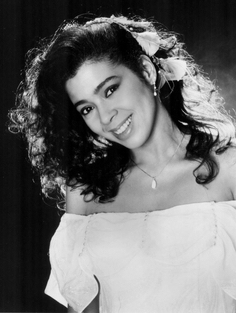
Irene Cara Escalera was an American singer and actress who rose to prominence for her role as Coco Hernandez in the 1980 musical film Fame, and for recording the film's title song "Fame", which reached No. 1 in several countries. In 1983, Cara co-wrote and sang the song "Flashdance... What a Feeling", for which she shared an Academy Award for Best Original Song and won a Grammy Award for Best Female Pop Vocal Performance in 1984.

Anything Else is a 2003 American romantic comedy film written and directed by Woody Allen, produced by Letty Aronson, and starring Allen, Jason Biggs, Stockard Channing, Danny DeVito, Jimmy Fallon, and Christina Ricci. The film premiered as the opening night selection of the 60th Venice International Film Festival. It was released theatrically in the United States on September 19, 2003, to mixed reviews.

"Fame" is a song written by Michael Gore (music) and Dean Pitchford (lyrics) and released in 1980, that achieved chart success as the theme song to the Fame film and TV series. The song was performed by Irene Cara, who played the role of Coco Hernandez in the original film. It was also her debut single as a recording artist. The song won the Academy Award for Best Original Song in 1980, and the Golden Globe Award the same year. In 2004, it finished at number 51 on AFI's 100 Years...100 Songs survey of top tunes in American cinema.
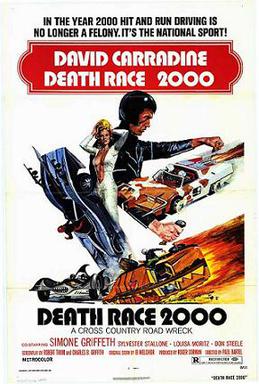
Death Race 2000 is a 1975 American science fiction action film produced by Roger Corman, directed by Paul Bartel, and starring David Carradine. The film takes place in a dystopian American society in the year 2000, where the murderous Transcontinental Road Race has become a form of national entertainment. The screenplay is based on the 1956 short story "The Racer" by Ib Melchior.

Richard Arnold Roundtree was an American actor. He was best known for his portrayal of private detective John Shaft in the 1971 film Shaft and four of its sequels, Shaft's Big Score! (1972), Shaft in Africa (1973), its 2000 sequel and its 2019 sequel, as well as the eponymous television series (1973–1974). He was also known for featuring in several TV series, including Roots, Generations, and Desperate Housewives.
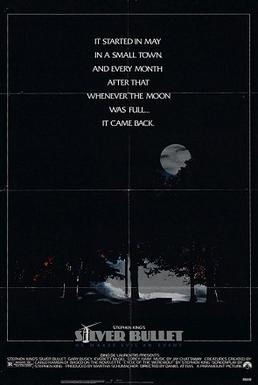
Silver Bullet is a 1985 American horror film based on the 1983 Stephen King novella Cycle of the Werewolf. It stars Gary Busey, Everett McGill, and Corey Haim, with Megan Follows, Terry O'Quinn, Lawrence Tierney, Bill Smitrovich, Kent Broadhurst, David Hart, and James Gammon in supporting roles. The film is directed by Dan Attias, written by King and produced by Martha De Laurentiis.
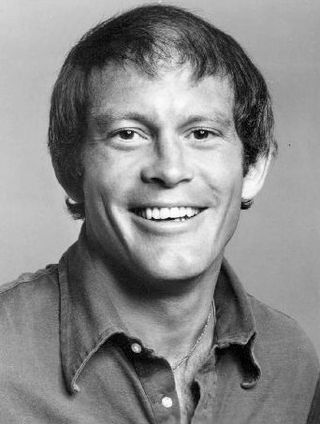
Maxwell Trowbridge Gail Jr. is an American actor who has starred on stage, and in television and film roles. He is best known for his role as Detective Stan "Wojo" Wojciehowicz on the sitcom Barney Miller (1975–1982), which earned him two consecutive Primetime Emmy Award for Outstanding Supporting Actor in a Comedy Series nominations. Gail also won the 2019 and 2021 Daytime Emmy Award for Best Supporting Actor for his role as Mike Corbin on the soap opera General Hospital.
Marshall Manesh is an Iranian-American actor.
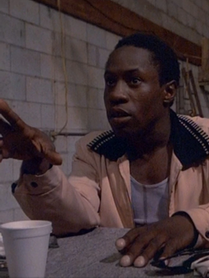
Charles Barnett was an American comedian and actor.

In Society is a 1944 film starring the comedy team of Abbott and Costello. It was the first of five Abbott and Costello films to be directed by Jean Yarbrough. It was re-released in 1953.

The Wiz is a 1978 American musical fantasy adventure film directed by Sidney Lumet. Adapted from the 1974 Broadway musical of the same name, the film reimagines the classic 1900 children's novel The Wonderful Wizard of Oz by L. Frank Baum with an African-American cast. Dorothy, a 24-year old teacher from Harlem, finds herself magically transported to the urban fantasy Land of Oz. On her travels seeking help from the mysterious Wiz, Dorothy befriends a Scarecrow, a Tin Man, and a Cowardly Lion.

What a Feelin' is the second studio album by American singer-songwriter Irene Cara. Released on November 2, 1983, this album is a continuation of the work that Cara began with producer Giorgio Moroder on the soundtrack to the 1983 film Flashdance. The dance-pop song she co-wrote with Moroder and Keith Forsey for the film, "Flashdance... What a Feeling", went to number one on Billboard magazine's Hot 100 and foreshadowed the style of this album, which was unlike her R&B-heavy debut. Although Cara was more accustomed to composing music, she relinquished most of those duties to Moroder here and shifted much of her songwriting focus to lyrics.

D.C. Cab: Music from the Original Motion Picture Soundtrack is the soundtrack to the 1983 film D.C. Cab. The producers selected artists for the album who were popular with a young, black audience, and the popularity of one of the film's stars, Mr. T, prompted the film's distributor to release the film four months earlier than planned. D.C. Cab performed poorly at the box office, and the soundtrack peaked at number 181 on the album chart in Billboard magazine.

Orphans is a 1987 American drama film directed by Alan J. Pakula. Written by Lyle Kessler, based on his 1983 play of the same name, the film follows two orphaned brothers as they navigate life on their own.

"The Dream (Hold On to Your Dream)" is a song written by Giorgio Moroder, Pete Bellotte, and the song's performer, Irene Cara, for the 1983 film D.C. Cab. Although not included on initial pressings of Cara's What a Feelin' LP, the decision to release the film four months earlier than originally slated prompted an arrangement for her album to be reissued with the song. A slightly different version (more noticeable in the intro) was also included on the film's soundtrack album; an edited version was released on the 7-inch single, and the 12-inch single included a much longer dance remix.


















